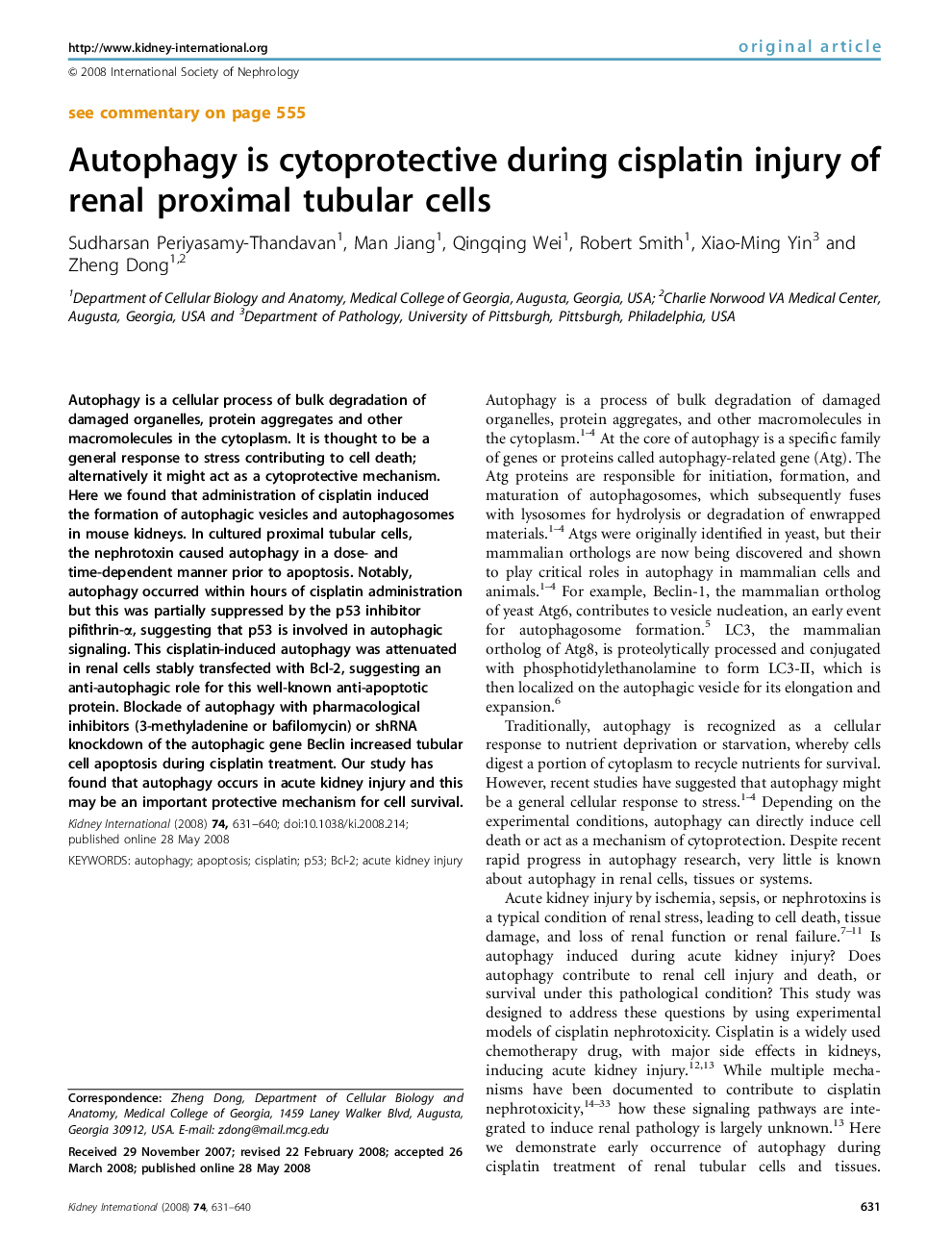| Article ID | Journal | Published Year | Pages | File Type |
|---|---|---|---|---|
| 3886403 | Kidney International | 2008 | 10 Pages |
Autophagy is a cellular process of bulk degradation of damaged organelles, protein aggregates and other macromolecules in the cytoplasm. It is thought to be a general response to stress contributing to cell death; alternatively it might act as a cytoprotective mechanism. Here we found that administration of cisplatin induced the formation of autophagic vesicles and autophagosomes in mouse kidneys. In cultured proximal tubular cells, the nephrotoxin caused autophagy in a dose- and time-dependent manner prior to apoptosis. Notably, autophagy occurred within hours of cisplatin administration but this was partially suppressed by the p53 inhibitor pifithrin-α, suggesting that p53 is involved in autophagic signaling. This cisplatin-induced autophagy was attenuated in renal cells stably transfected with Bcl-2, suggesting an anti-autophagic role for this well-known anti-apoptotic protein. Blockade of autophagy with pharmacological inhibitors (3-methyladenine or bafilomycin) or shRNA knockdown of the autophagic gene Beclin increased tubular cell apoptosis during cisplatin treatment. Our study has found that autophagy occurs in acute kidney injury and this may be an important protective mechanism for cell survival.
